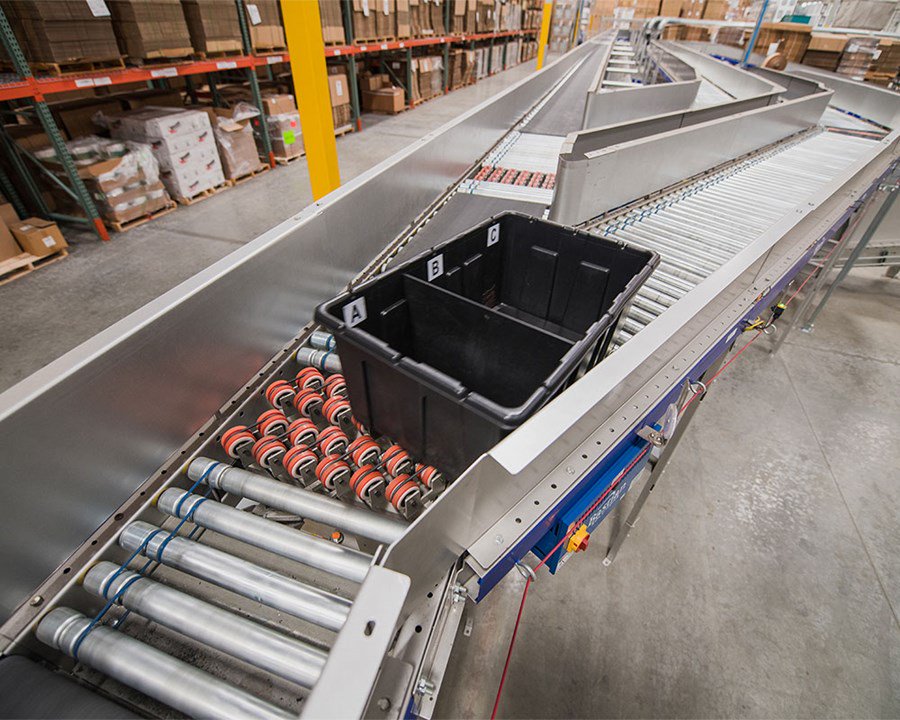
Streamlining Logistics: How Automation is Reshaping Warehouse Operations
Prakash Kumar Baskaran | 17 April 2024
Automation is not merely a buzzword; it's a transformative force reshaping the landscape of warehouse operations and logistics management. By harnessing the power of advanced automation technologies such as AS/RS (automated storage and retrieval systems), conveyor and sortation systems, robotics, GTP (goods to person solutions), artificial intelligence and data analytics, are streamlining their logistics processes like never before.
From inventory management to order fulfilment, automation is revolutionizing every aspect of warehouse operations, driving efficiency, accuracy and agility.
The Need for Streamlining
Before delving into the role of automation, it's essential to understand the challenges that warehouse operations face. Traditional methods often involve manual processes prone to human error, inefficiencies in inventory management and difficulties in adapting to fluctuating demand patterns. These challenges not only hinder productivity but also increase costs and compromise customer service levels.
Streamlining warehouse operations through automation is essential for improving efficiency, reducing costs, optimizing space utilization, enhancing inventory management, ensuring accuracy and quality and adapting to fluctuating demand.
The Rise of Automation
Enter automation—a game-changer in the world of warehouse operations. Automation technologies encompass a wide range of solutions, from robotic picking systems and AS/RS to intelligent software platforms and predictive analytics. These technologies work in tandem to streamline processes, optimize workflows and enhance overall efficiency.
This is driven by technological advancements, changing market dynamics and the pursuit of efficiency and competitiveness. As technology continues to evolve and new innovations emerge, automation will play an increasingly crucial role in shaping the future of warehouse operations.
Optimizing Inventory Management
One of the primary benefits of automation in warehouse operations is its ability to optimize inventory management. Automated systems can track inventory levels in real-time, reducing the risk of stockouts or overstocking. By implementing automated replenishment processes, warehouses can ensure that products are always available when needed, minimizing disruptions and maximizing customer satisfaction.
Enhancing Accuracy and Speed
Automation also plays a crucial role in improving accuracy and speed in warehouse operations. Automated order picking systems equipped with advanced vision systems and machine learning algorithms, can identify and pick products with unparalleled precision. Automated sorting and packing processes further streamline operations, reducing errors and expediting order fulfilment.
Adapting to Dynamic Demands
In today's rapidly evolving marketplace, warehouses must be agile and adaptable to meet changing demands. Automation enables warehouses to scale operations quickly and efficiently in response to fluctuations in demand. Whether it's peak season spikes or unexpected surges in orders, automated systems can dynamically adjust workflows to ensure seamless operations.
The Human Element
While automation is undoubtedly transforming warehouse operations, it's essential to recognize the role of human workers in this ecosystem. Rather than replacing human workers, automation empowers them to focus on higher-value tasks that require creativity, problem-solving and strategic decision-making. By leveraging automation to handle repetitive or physically demanding tasks, warehouses can create a safer, more fulfilling work environment for their employees.
Looking Ahead
As technology continues to advance, the future of warehouse operations holds exciting possibilities. Innovations such as autonomous vehicles (AVs) and Internet of Things (IoT) integration promise to further optimize processes and drive efficiency in logistics and supply chain management.
Automation is revolutionizing warehouse operations and reshaping the logistics landscape as we know it. By streamlining processes, optimizing inventory management, and enhancing accuracy and speed, automation enables warehouses to operate more efficiently and effectively than ever before. As we look to the future, embracing automation will be essential for staying competitive in an increasingly complex and demanding marketplace.
Prakash Kumar Baskaran is an Application Engineer at Bastian Solutions, based out of India. He has a bachelors degree in Mechanical Engineering Streams from Adhiyamaan College affiliated to Anna University. As an Application Engineer with more than seven years of experience he can help customers to find optimized automation solution using conveyors, sortation systems, ASRS solutions, shuttle systems, goods to person solutions and more.
Comments
No comments have been posted to this Blog Post
Leave a Reply
Your email address will not be published.
Comment
Thank you for your comment.